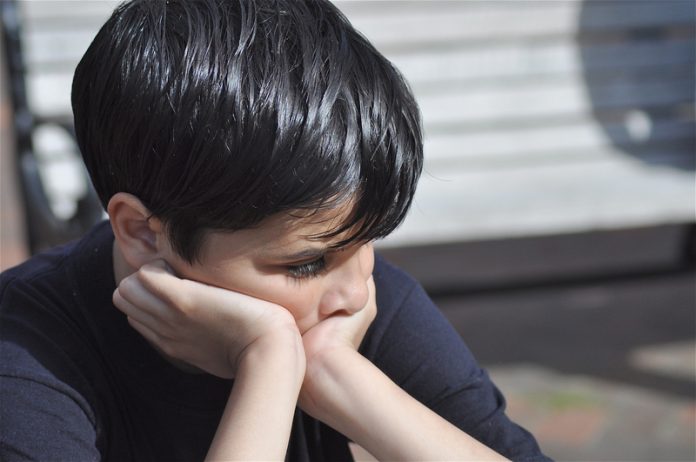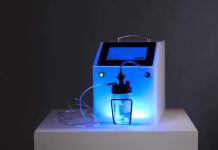Dr Kim Roberts, Professor at Wilfrid Laurier University, conducts research to discover how children use memories when recalling traumatic events
Think of a very special day in your life. It could be your wedding day, the birth of a child, the day you got your first bike, for example. What do you remember? Now, think about something you do regularly such as, driving to work, checking email, or cooking dinner. Can you see any differences in what you remember about a special day versus a regular activity? Do you remember more about one of them than the other? Is one memory more vivid, or contain more contextual information such as the time, and place? What about conversations, colours, the way things felt?
Memories of unique events that happen infrequently are quite different to memories of events that are repeated many times. We can remember the details of unique events quite well, although this fades over time. In contrast, when we remember something that has happened over and over, we do not really recall the exact details – can you remember what you wore the last time you drove to work, and the time before that, and the time before that? I certainly cannot. But I do remember the route I took (it’s always the same), that the radio was on, and that I parked next to my building. I may not remember exactly which radio station I listened to, or which particular parking spot I used. In other words, I can remember generally what my drive to work is like, but cannot really recall a particular time and the particular details associated with that time.
Scientists call this type of memory a schema which is a cognitive structure that helps us store information efficiently. It’s as if our brains realise that if we have the same experience over and over, we should retain what usually happens and not worry about the precise details each time.
Schemas sound quite sophisticated, and so can children develop schemas? The answer is yes. Further, they can do this from a very young age! Children aged just 2.5 years can develop schemas about a day at the day care, a bedtime routine; in fact, any experience that is repeated can develop into a strong memory of what usually happens driven by a well-formed schema. Even when the exact details fade from memory, schema recall can still be quite good.
Memory in children: For forensic investigations
In the Child Memory Lab at Wilfrid Laurier University, my students and I have been studying how we can maximise the accuracy of children’s memories in forensic investigations. In cases of alleged child sexual abuse, child complainants are routinely asked to describe a specific incident. If there have only been one or two incidents, then children are able to describe some precise details (although much depends on the skill of the investigative interviewer, of course). The sad reality is that many children, over 50% of child victims, have been abused on many different occasions. And what happens to our memories when an experience is repeated? A schema develops. Children can recall the common things that happen even after long delays, delays that are commonplace between the incident(s) and children’s disclosure of abuse, and delays between investigation and prosecution.
However, many investigators must try and elicit information about individual incidents for several reasons: 1) The police need to know what charges to lay; 2) the defendant has a right to defend him/herself and knowing the exact day may provide an alibi; and 3) the court needs to pass appropriate sentences based on the charges. None of this can be done if children can only talk about what usually happens and, perhaps worse, jurors and judges find children less credible if they cannot provide exact details of the alleged crimes. In some countries, charges can be made that span a particular amount of time (e.g. “from May 2003 to December 2011”), and this occurs more often with historical abuse cases, that is, when an adult makes allegations of child abuse many years after childhood. These incidents are often impossible to date precisely.
So what happens when children are asked to describe a particular instance of a repeated event? Dr Martine Powell (Deakin University, Australia) and I have studied this question for over 15 years. The good news is that children rarely intrude false information such as describing actions that never happened in any of the repeated events.
Further, most of what they describe are details that did actually happen. So in one sense, they are quite accurate – the majority of what they say is true.
Here’s the bad news: Although they describe things that did happen, they are very confused about which details go with which particular incident. So if asked what happened “the time your sister was there”, a child might provide information that came from three other times when s/he was abused but not the time the sister was there. This means that a defendant may be able to provide an alibi, not because the alleged incidents didn’t happen, but because those things did not happen on the particular day under discussion.
Schema can provide a framework for recall
At one time, interviewers were cautioned to avoid discussion of ‘what usually happens’ and focus on individual incidents. However, doctoral research by Sonja Brubacher in my lab has shown that if children are allowed to recall a schema before they are subsequently asked about individual incidents, they are more accurate and provide more information than when first questioned about individual incidents.
It is as if the schema provides a framework that children can then rely on to structure their recall of individual incidents.
Children should not be further victimised for being children who are still developing their memory skills. But it is essential we discover innovative ways to use the abilities they do have. I and my students are indebted to the research agencies for providing funds for us to do this research. Good science provides the evidence needed to form developmentally-appropriate interviewing techniques when children are involved in investigations of child sexual abuse. It’s a win-win.
Kim P Roberts PhD
Professor
Wilfrid Laurier University
Tel: +1 519 884 0710 ext. 3225
Please note: this is a commercial profile











